Are you experiencing hair loss after bleaching? You don’t have to. You can stop or reduce hair loss through a simple hair care routine.
In this article, we’ll go through what causes hair loss after bleaching and ten tips to help you stop your bleached hair from breaking.
Why Does Bleach Result in Hair Loss?
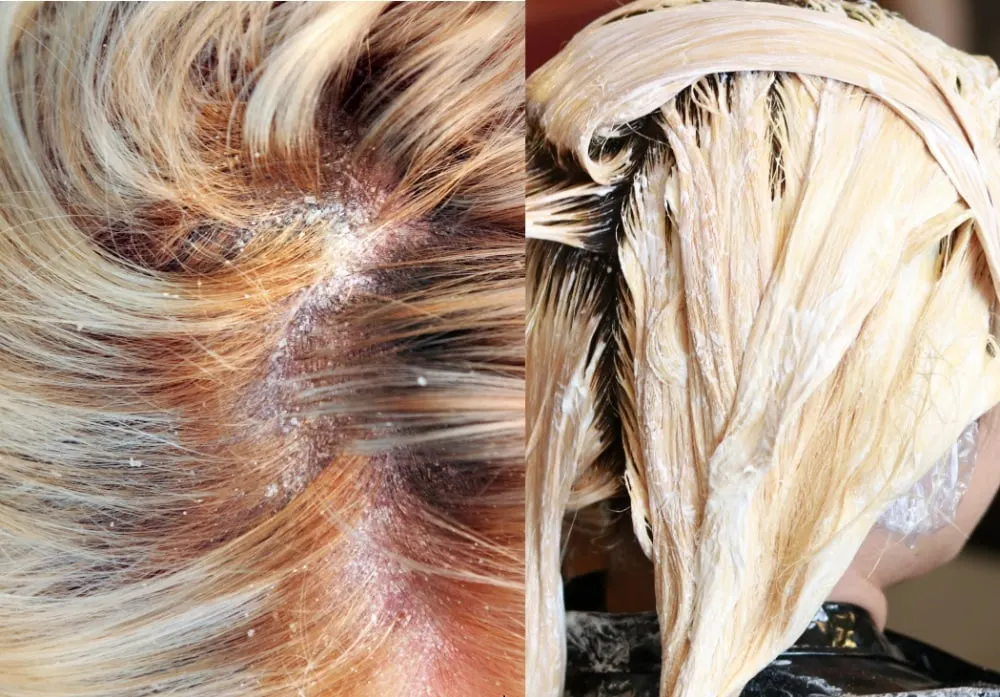
There are various reasons why bleaching can result in hair loss. Bleaching done right by a professional does not cause hair loss.
Dry and/or damaged hair will break after bleaching. Incorrect or lacking hair care after hair bleaching will also lead to hair breakage and falling. Here are some common reasons for hair loss after bleaching:
Bleach Hair Treatments Are Harsh
Hair bleach is an alkaline chemical with a pH of 8 to 10. Your hair has a pH of 4 to 5. The bleaching hair treatments change the pH of your hair in the time it takes for them to work. This process is harsh, especially when you are bleaching dark hair.
You Could Have an Allergic Reaction to Bleach
Although rare, it is not impossible to have an allergic reaction to bleach. Bleach is a chemical like any other and different people react differently to it. Your scalp may have sensitivities or a full-on allergic reaction. Sometimes the reaction is to a specific bleach mixture or formulation.
Your Bleach Mixture Might Be Too Strong
The bleach mixture you or your hair colorist use might be too strong. Trying to get quick results by using a strong mixture can lead to hair loss down the road. Bleach mixtures must be perfectly balanced to achieve great results without compromising the integrity of your hair.
Leaving Bleach in for Too Long Can Result in Hair Damage
Leaving bleach in longer can lead to better results. Your hair color lifts off, and it is easier to dye it. However, you can leave bleach in too long. This will result in hair breakage as the bleach will fry your hair. Due to the high pH of the bleach, your hair integrity is compromised, and your strands become weak and brittle.
Hair Loss Might Indicate an Underlying Health Condition
Sometimes it is not the bleach that causes hair loss. Certain underlying health conditions and nutrient deficiencies lead to hair loss.
Deficiencies in iron, B vitamins, Omega 3 fats, and protein can lead to hair loss. Conditions like alopecia areata also lead to hair loss. An immune system compromised by covid, the flu, pregnancy, or other infections can lead to hair fall.
It Might Be Because of Your Hair Styling Tools
Too much direct heat and over-manipulation of the hair lead to hair breakage. If you are using heat to style your hair daily, you are compromising the moisture balance in your hair strands. Thin-toothed combs and tight buns with elastic also cause hair breakage.
How To Stop Hair Loss After Bleaching
Don’t despair if you notice hair loss after bleaching. You can fix the problem. It is not always an irreparable situation. Before you take scissors to your hair and chop it all off, here are ten things you can do to stop hair loss after bleaching:
1. Use Paraben-Free Shampoos
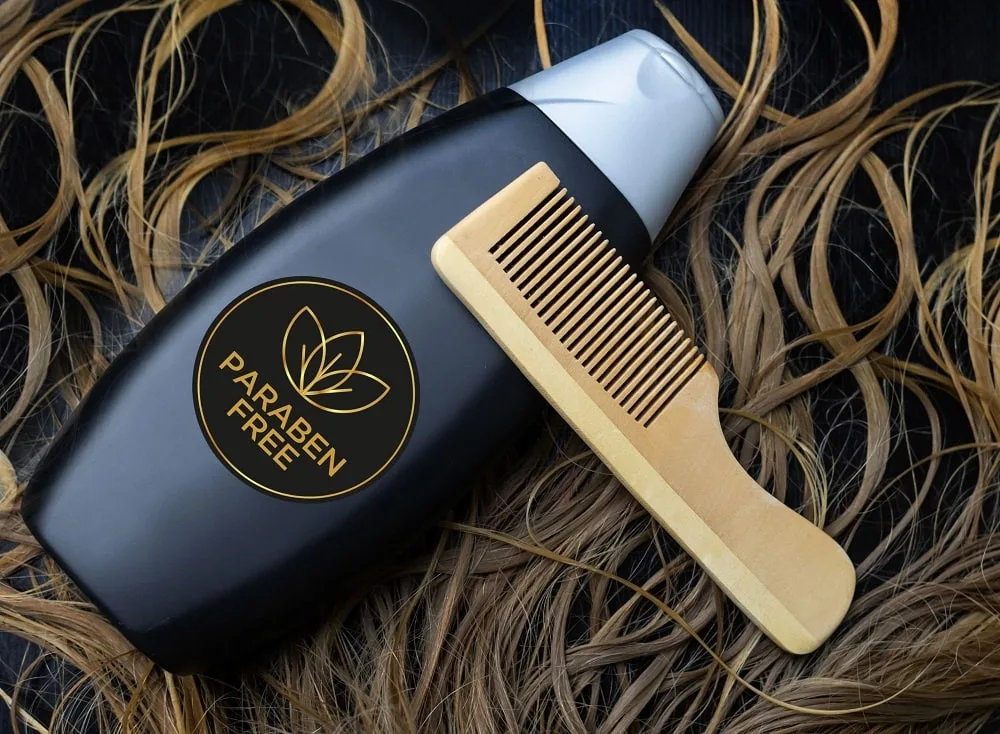
Parabens are one of the most-researched preservatives for hair and skin care. They are unlikely to cause problems when used on healthy hair.
However, using a shampoo with parabens on damaged hair will cause further damage. Parabens can cause the drying of hair and irritate your scalp. Using shampoos with parabens on damaged bleached hair will lead to hair fall.
Invest in a good, paraben and sulfate-free shampoo. Sulfates are strong cleansers that clarify your hair. If used often they lead to dry and brittle hair. Stick to a paraben and sulfate-free shampoo while your hair recovers to avoid stripping it of moisture.
2. Wash Your Hair With Cold Water
Washing hair with cold water can help seal moisture. Note that this works on high-porosity hair only. With low-porosity hair, cold water will make it harder for your hair to absorb moisture from leave-in conditioners and creams and lead to drier hair.
Using cold water as your last rinse can lead to shinier and more moisturized hair for those with high porosity hair. The cold water seals the hair cuticle, locking in moisture.
3. Air Dry Your Hair Instead of Using Heat Styling Tools
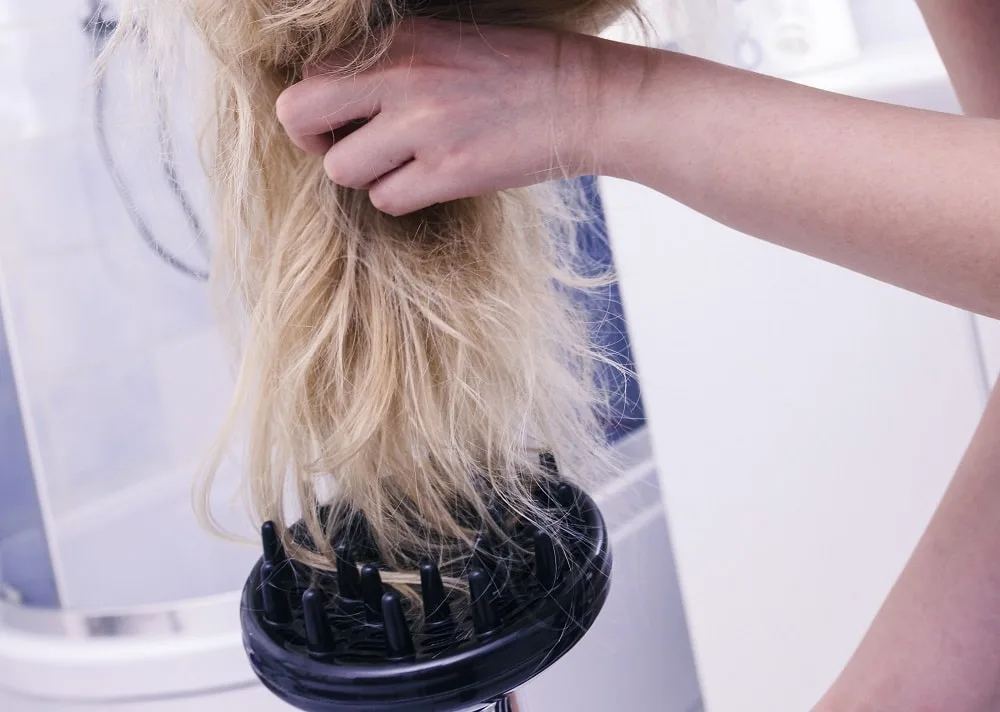
Direct heat on your hair can lead to breakage. Direct heat breaks down the hydrogen bonds of your hair and compromises the strength of your hair strands. Air drying your hair is less damaging to the strands.
Remember that wet hair is fragile hair because water, like heat, restructures the hydrogen bonds of your hair. If your hair takes longer to dry, air drying up to 70% and using a blow drier or diffuser on cool is the best way to dry hair without damage.
Limit your use of heat styling tools to once a month or less. You can opt for roller sets, heatless curls, diffusing or blow drying on cool, and/or using a hooded dryer. Saturate your hair with heat protectant if you have to use direct heat on your hair like a flat iron.
4. Use Hair Masks
Hair masks are packed with hair-loving ingredients. They help nourish, strengthen and hydrate hair. You can choose protein-dense or protein-free hair masks depending on your hair porosity. Damaged bleached hair needs protein, as protein makes up 90% of our hair. However, low-porosity hair does not thrive on too much protein.
Trial and error will help you know how often to use protein hair masks on your hair. Some people may need protein biweekly, while others can go up to 8 weeks without needing a protein hair mask. You can use a hydrating hair mask in between protein masks.
5. Nourish Your Hair With Deep Conditioning Treatments
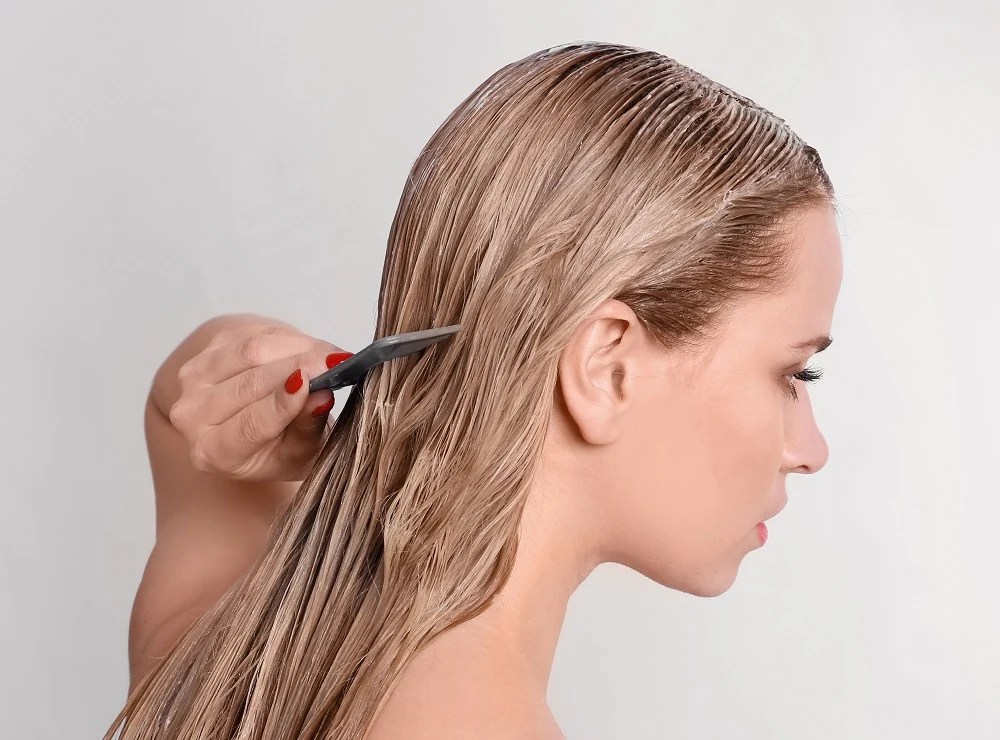
Deep conditioning treatments allow you to replenish moisture lost from your hair strands. Hair fall is sometimes caused by dry and brittle hair. Nourishing your damaged bleached hair with deep conditioning treatments weekly helps restore moisture to your strands.
Some deep conditioning treatments have proteins like keratin and can strengthen the hair as well. Don’t overdo it as protein overload or hygral fatigue can lead to further damage. Observe how your hair reacts after each deep conditioning treatment and adjust accordingly.
6. Rinse Your Hair With Rice Water
Rice water contains protein and can strengthen your hair strands. Rinsing your hair with rice water once a month or biweekly adds protein to your hair strands. However, proceed with caution.
Rice water can lead to dry and brittle hair if overused. Those with low porosity hair should only use it once every few months. Try it once and observe how your hair responds.
7. Use Coconut, Rosemary, Argan, Almond, or Castor Oil
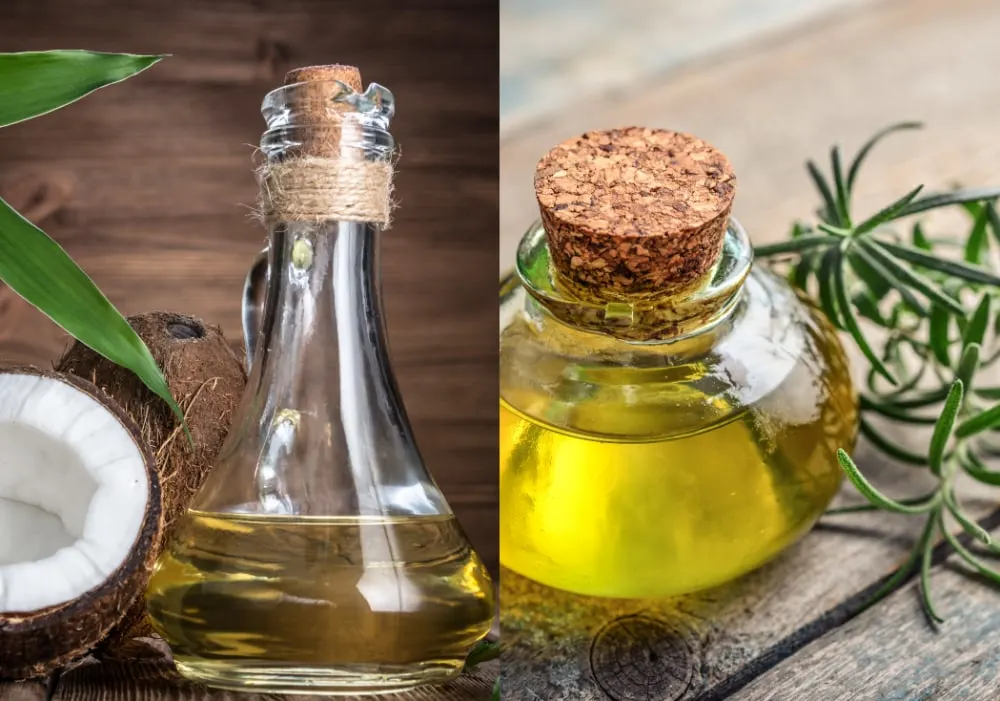
Hair oiling helps seal moisture on your hair strands. Some oils like coconut and rosemary can strengthen your hair. Use rosemary oil on your scalp to promote hair growth and on your lengths to strengthen it. You can dilute rosemary oil with a carrier oil like almond, castor, or coconut oil.
For those with low porosity hair, stick to sweet almond and argan oils. These do not prevent the absorption of moisture or weigh your hair down. Those with high porosity hair will see immense benefits to using coconut and castor oils as they lock in moisture and also strengthen.
8. Try Not To Wash Your Hair As Often
Remember that wet hair is fragile hair, so try to avoid overwashing your hair. Too much shampoo and water can lead to dry and weak hair that breaks. While a clean scalp goes a long way in promoting hair growth, overwashing can irritate your scalp and make your hair dry.
Wash your damaged bleached hair half as much as you normally would. Focus on clarifying the scalp and avoid overwashing the ends. Follow with a deep conditioning mask or hair treatment.
9. Protect Your Hair Against the Sun
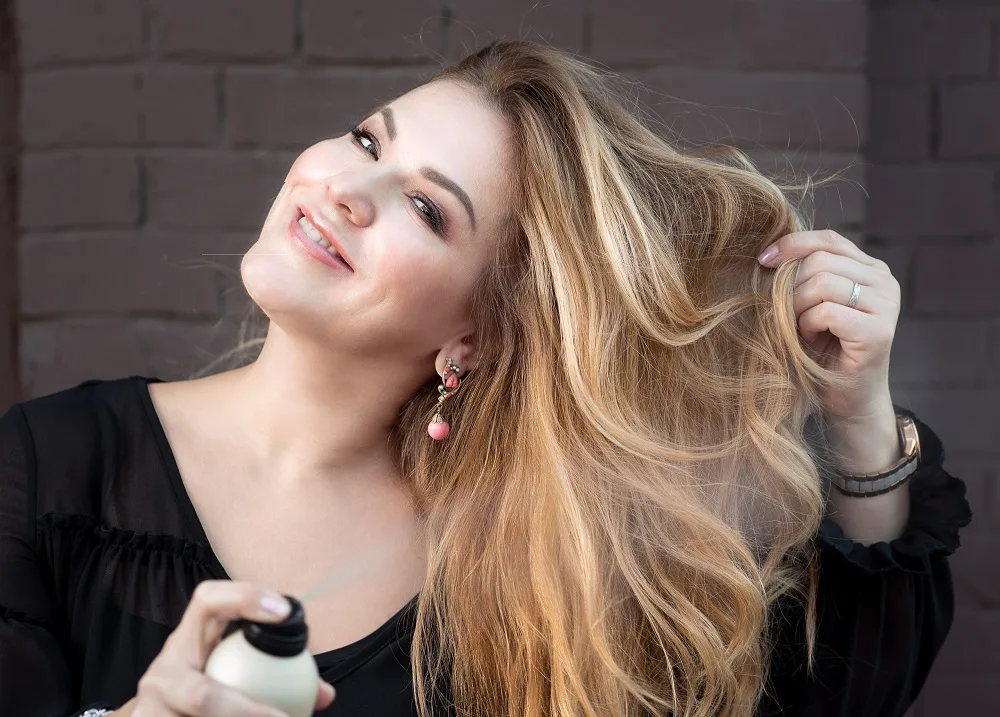
Sun damages both hair and skin. Damaged bleached hair is more sensitive to UV rays than healthy hair. Wearing hats and scarves can help protect your hair against the sun. You can also use hair SPF sprays, creams, and oils to increase protection.
UV damage can exasperate hair fall on damaged hair. Taking steps to keep your hair away from the sun will hasten its recovery.
10. Test the Bleach on a Patch of Your Hair
Before you commit to bleaching your hair, ensure you have patch-tested the specific bleach mixture you will use. Apply the bleach mixture on a small strand of hair and wait 24 to 48 hours to see how you react. Observe how your hair reacts and adjust the bleach mixture accordingly.
Final Thoughts
You can stop hair loss after bleaching by following a strict hair care regimen outlined above. Cutting off your hair to deal with hair loss is not always the answer. Even virgin hair will break off if you do not practice good hair care. You can choose to get a trim every so often as you implement the tips above to even out your falling bleached hair.
Focus on staying consistent and building a healthy hair care routine. You should notice less hair fall in three months. Have patience, your hair will recover within eight to twelve months.
